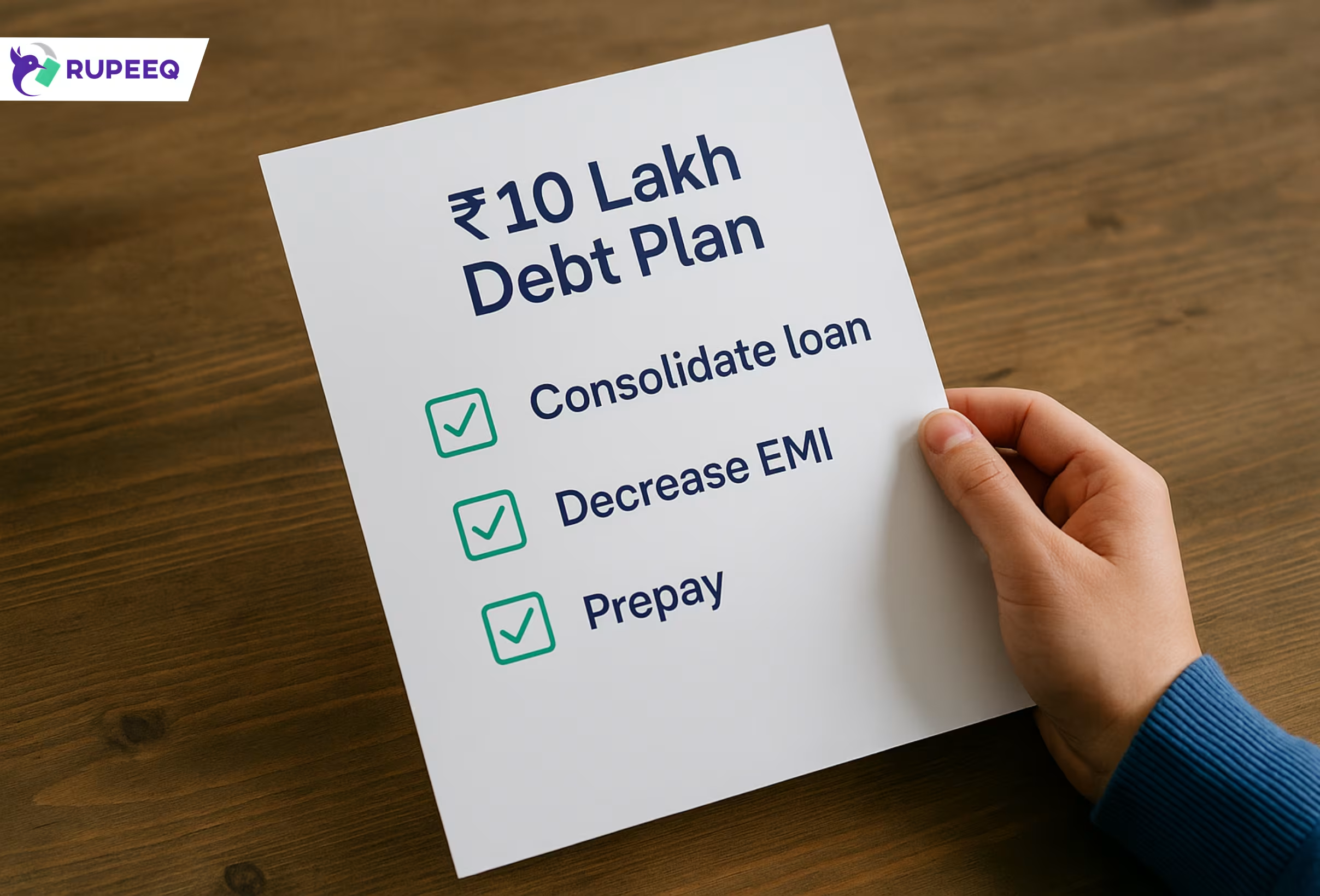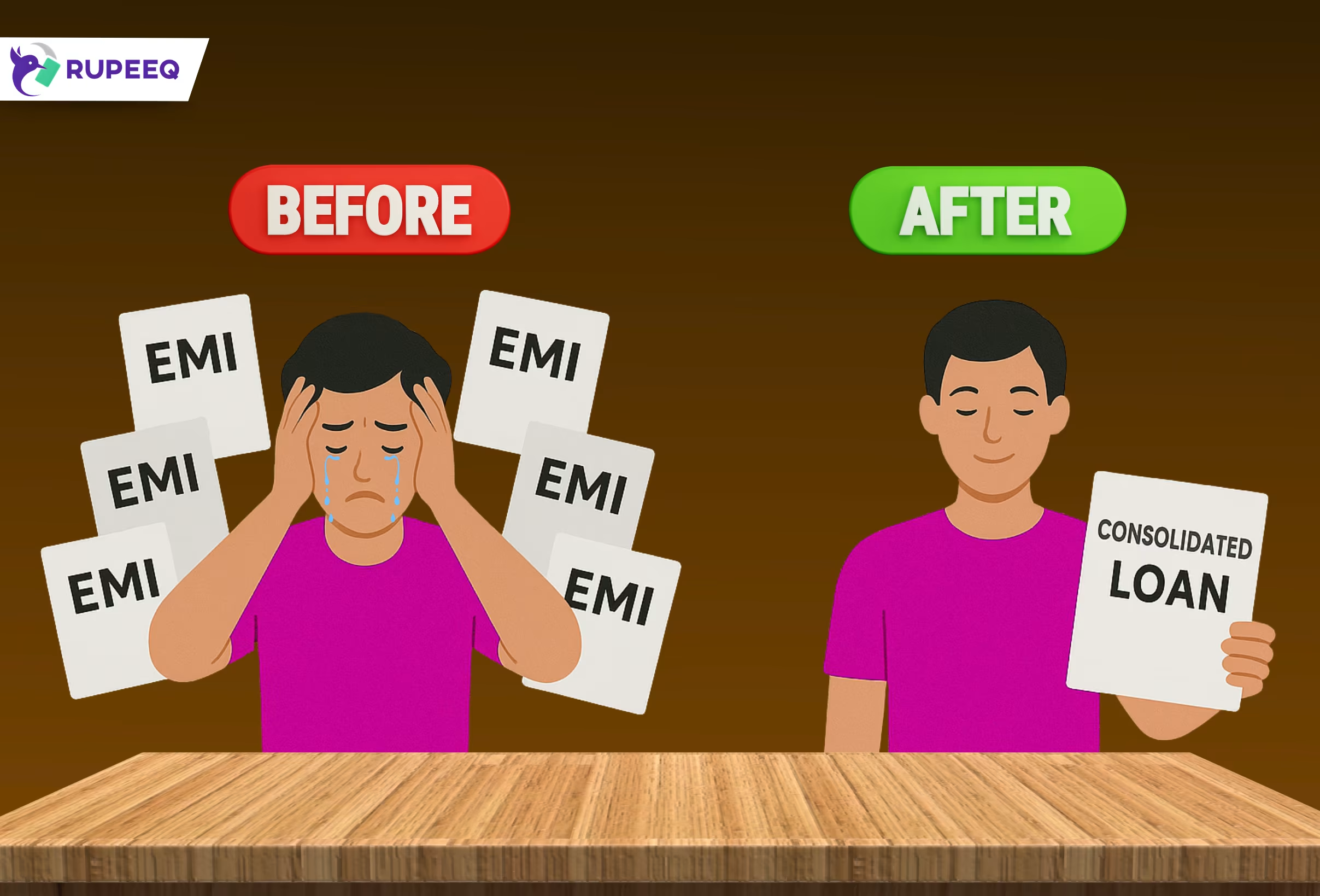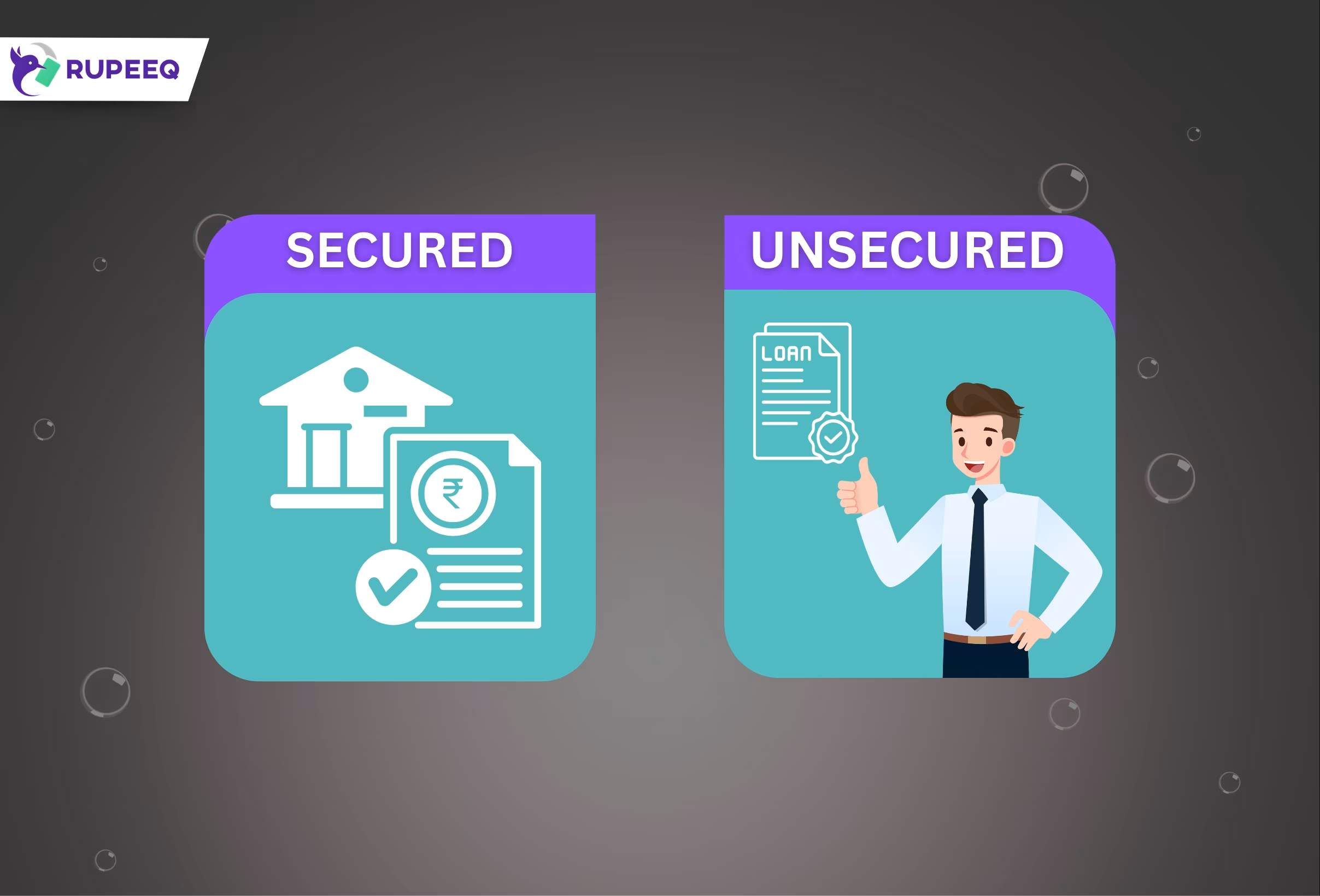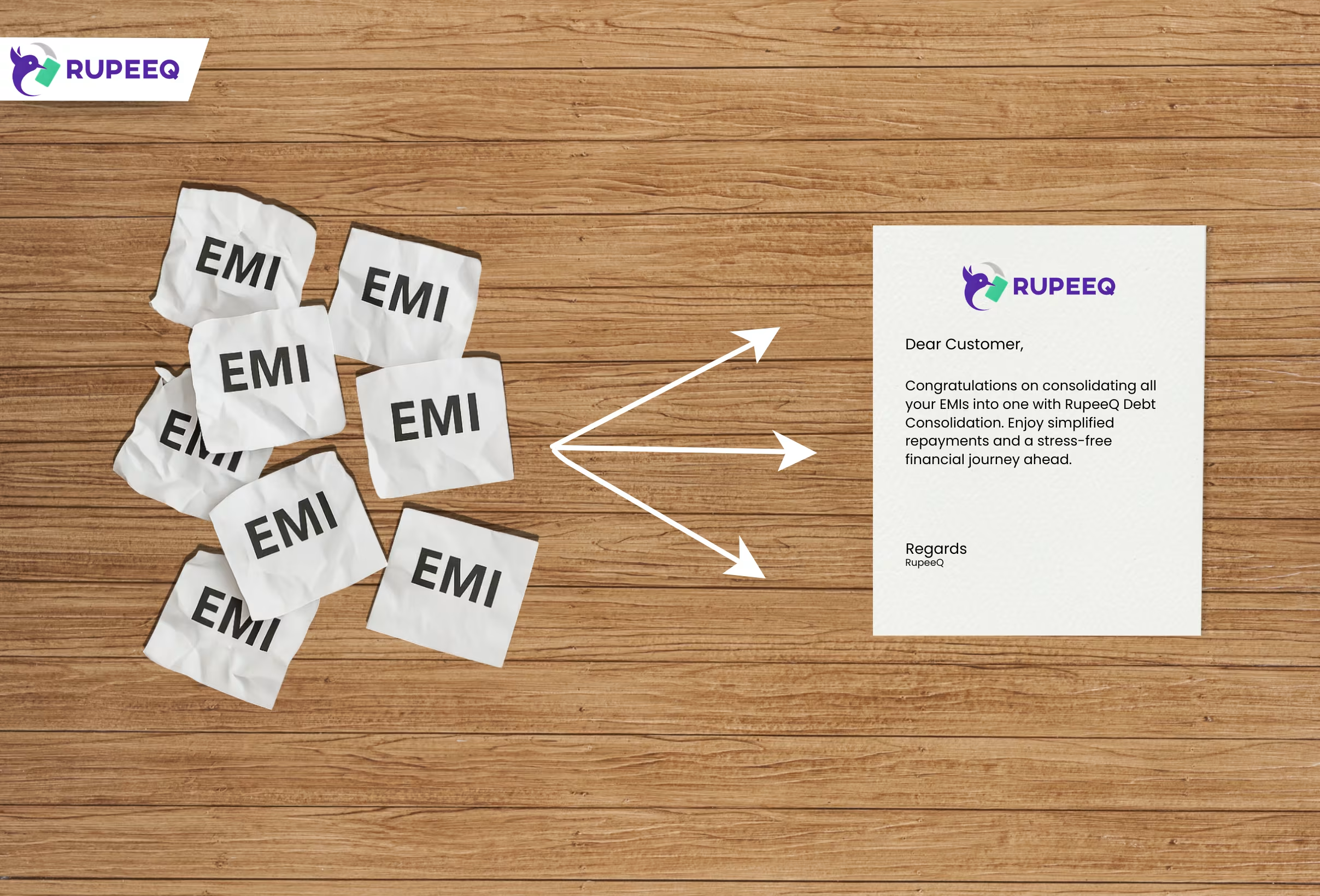Debt consolidation often sounds like the perfect fix for EMI overload—but is it always the right move? For salaried borrowers juggling multiple EMIs, the idea of replacing them with a single monthly payment at a possibly lower interest rate can be attractive. But like every financial tool, debt consolidation has both advantages and drawbacks.
In this blog, we break down when debt consolidation is good, when it might be bad, and how to decide if it’s the right step for you.
What Is Debt Consolidation and How Does It Work?
Debt consolidation is a financial strategy where you take a new loan to pay off multiple existing loans or credit card dues. This results in a single monthly EMI instead of several, ideally with:
- A lower interest rate
- A longer repayment term
- Simplified financial management
Common debts consolidated include:
- Personal loans
- Credit card outstanding
- Consumer durable loans
- Buy Now Pay Later (BNPL) EMIs
When Is Debt Consolidation a Good Idea?
Debt consolidation can be highly effective when used under the right conditions. Let’s look at some scenarios where it works in your favour.
1. You’re Struggling with Multiple EMIs
If you’re managing 3–5 loans with different due dates, amounts, and interest rates, consolidation can bring relief by combining them into one structured loan.
Example:
Managing 3 EMIs of ₹4,000, ₹6,000, and ₹5,000 becomes a single ₹12,000 EMI with one due date.
2. You Can Lower the Interest Rate
One of the key benefits of debt consolidation is securing a lower interest rate than your current debts—especially helpful if you’re carrying high-cost credit card dues or BNPL balances.
RupeeQ Tip:
Always compare loan offers using RupeeQ’s free credit score check to unlock pre-approved offers with competitive rates.
3. You Want to Improve Credit Health Over Time
Multiple loans can mean a higher credit utilization ratio and missed EMIs. With one manageable loan and timely payments, your credit score can improve steadily.
4. You Want Fixed Repayment Terms
Unlike revolving credit like credit cards, a debt consolidation loan comes with a fixed tenure and EMI—making budgeting more predictable and reducing temptation to overspend.
5. You Have a Stable Income
If your job and income are stable, you’re well-placed to commit to regular EMIs for the new consolidated loan without risking default.
When Debt Consolidation May Not Be the Right Move
Debt consolidation can also backfire if not used responsibly. Below are some red flags and risks to consider.
1. You End Up Paying More in the Long Term
A lower EMI over a longer tenure may feel easier monthly but can result in higher total interest paid over time.
| Example | Option A | Option B |
| Loan Amount | ₹2,00,000 | ₹2,00,000 |
| Interest Rate | 14% | 14% |
| Tenure | 3 years | 5 years |
| EMI | ₹6,844 | ₹4,651 |
| Total Interest | ₹46,387 | ₹79,063 |
So while Option B gives lower EMI, you pay ₹32,676 more over 5 years.
2. You Resume Spending on Cleared Credit Lines
One common mistake is to consolidate debts, free up credit cards, and then accumulate more debt again. This leads to a bigger debt cycle.
3. You Haven’t Fixed the Root Cause
If you’re consolidating debt without changing poor financial habits—like overspending, impulse buying, or not budgeting—you’re likely to land in the same spot again.
4. You Have a Low Credit Score
If your score is below 650, you may not get a good consolidation deal. Instead, you might be offered higher interest rates, making the loan costlier than your current ones.
How to Decide If Debt Consolidation Is Good for You
Ask yourself the following before applying:
| Question | Ideal Answer |
| Is your credit score above 700? | Yes |
| Do you have a stable monthly income? | Yes |
| Are your existing debts at high interest rates? | Yes |
| Can you avoid using the cleared credit limits again? | Yes |
| Will the new loan reduce total interest outgo? | Yes |
If you answered “Yes” to most, debt consolidation is likely a good financial decision.
RupeeQ Tip: Use RupeeQ’s EMI calculator to compare your current EMIs with potential consolidation offers. This helps you see actual savings before you commit.
Pros and Cons of Debt Consolidation
| Pros | Cons |
| One single EMI instead of many | Can extend repayment timeline |
| Potentially lower interest | May encourage more spending |
| Boosts credit score with timely EMIs | Not helpful if root financial issues continue |
| Better budgeting & financial clarity | Not ideal for those with poor credit scores |
Final Verdict: Good or Bad?
✅ Good if:
- You want to simplify repayments
- You qualify for a lower interest rate
- You’re committed to improving your financial habits
❌ Bad if:
- You’re using it to delay payments
- You keep spending on cleared credit
- You don’t compare total interest costs
Debt consolidation is neither universally good nor bad—it’s a powerful tool when used wisely.
Conclusion
Debt consolidation can be a smart move for borrowers looking to simplify their finances, save on interest, and regain control over their debt. But it requires discipline, good planning, and the right timing.
If you’re considering it, use RupeeQ to check your credit score for free, compare consolidation loan offers, and choose what works best for your financial situation. Smart borrowing begins with informed choices.







